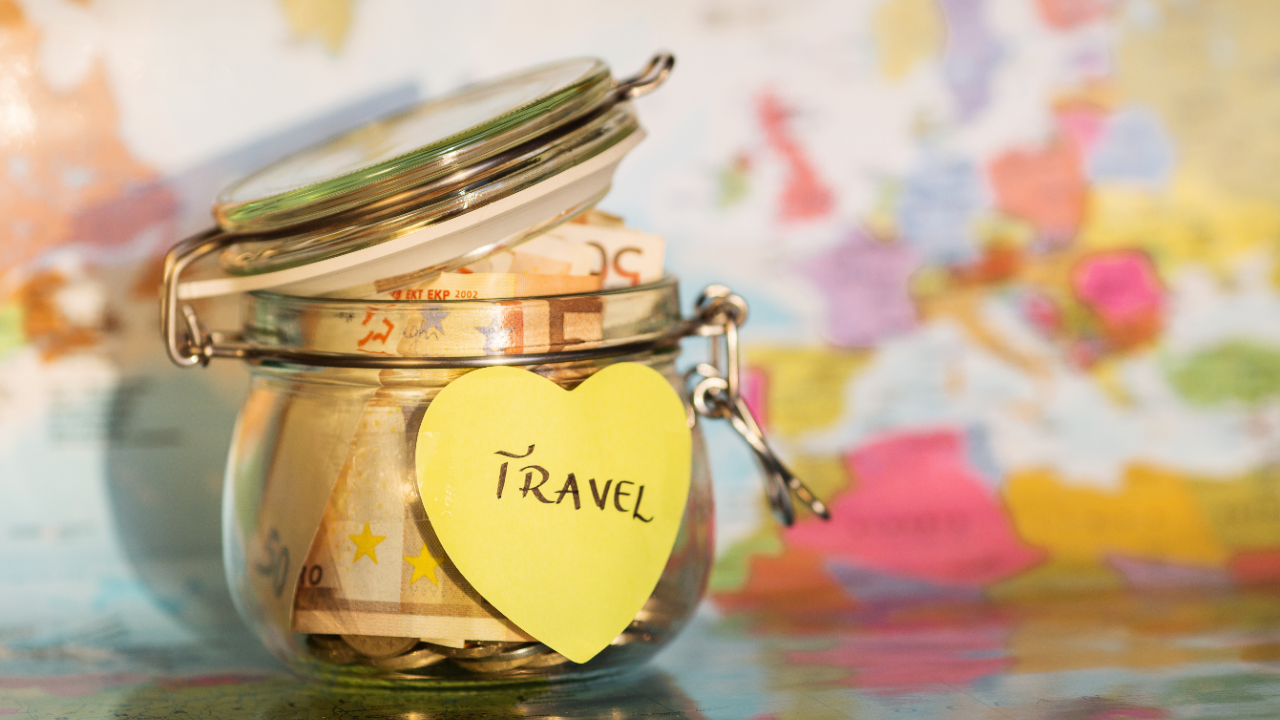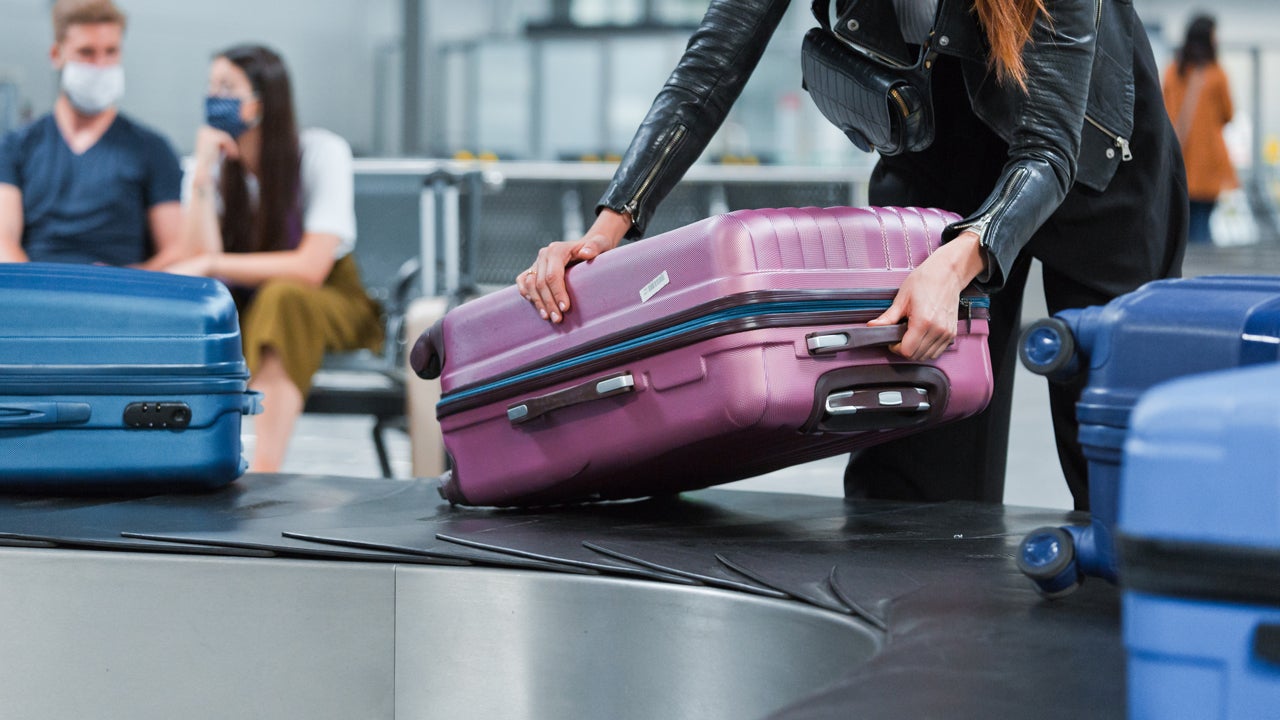5 steps to create a travel budget template

Keeping track of costs when traveling becomes much easier with a bit of forward planning. Transportation, lodging, food and entertainment are some of the costs you’ll want to plan for. Plus, travel inflation has made it all the more important to establish a budget and make sure you can comfortably account for these expenses.
Creating a budget not only means understanding all the expenses you need to consider but also helps to serve as a guide for spending and can provide emotional security.
Travel expenses statistics
- On average, travelers spend about $225 per day for a trip within the U.S., excluding flight costs.
- The largest average spending category for travelers is accommodation; a hotel room for one person in the U.S. costs $102 a day on average, which is nearly half of the total cost for domestic travel.
- Transportation, on average, costs $36 a day in the U.S.
- Inflated costs have become a significant problem for American travelers — 57 percent say travel prices are higher than they’re accustomed to.
- Disruption to travel plans, whether due to inflated prices or other causes, sometimes hurts bank accounts, with 14 percent of those polled saying they lost money due to canceled or disrupted plans.
- Still, Americans don’t want to give up vacationing. A third say they’d rather scale back on their travel budget than not travel at all.
Sources: Budget Your Trip, Bankrate, Outdoorsy
Building a travel budget template
The key to building an effective travel budget is researching costs for the desired destination ahead of time. This can help you make informed decisions about where to allocate spending, where you can make room for savings and what you want to prioritize.
While some might find it easiest to create a budget template with paper and pencil, you can also use servers such as Excel or Google Sheets, or even a pre-made online template, to draft a budget. Another option to consider is a budgeting app. Some of these apps, such as Mint and TravelSpend, allow you to make a budget specifically for a vacation with automated suggestions.
Before drafting up the budget, you’ll want to evaluate your own finances and determine how much you can set aside for a vacation. Once you’ve researched costs of different spending categories for your travel destination, you can see how the total projected cost measures up to your available spending money. Then, make adjustments to the budget as necessary to match it up with your financial profile.
Here are the steps for best creating a travel budget and distributing funds according to your needs.
1. Designate necessities first
On any trip, you’ll need to eat, get around and have somewhere to sleep. Food, accommodations and transportation are three expenses you can’t avoid, and they’re going to make up the bulk of your budget. You’ll want to establish these categories in your budget first, since they are less flexible.
According to Budget Your Trip, accommodation costs make up for about 45 percent of travel expenses on average, excluding airfare, for domestic trips within the U.S. That cost can vary depending on where you’re staying. For example, an Airbnb or hostel might be cheaper than a hotel room.
It’s also important to consider the cost of airfare if you’ll be traveling by plane. As of November 6, 2022, the average cost for domestic, round-trip flights was $328, according to Hopper. The average cost of international, round-trip flights is $1,022. Under the transportation category of your budget, you may also want to add line items for different ways you’ll be getting around, including rail passes, car rentals or bike rentals.
When it comes to food, this expense can be highly variable. If you’re going to eat out everyday, the cost of food can be over $100 per day. You can significantly lower this cost if you’re staying somewhere with a kitchen and buy groceries to make your own meals.
It’s a good idea to add in extra costs for emergencies within your necessities, such as a last-minute accommodation change or having to take more expensive transportation.
2. Expenses for visas, travel insurance and vaccinations
Depending on the destination and length of your trip, visas and vaccinations might be necessary. You’ll need a visa to travel to countries that don’t have visa agreements with the home country of your passport. Search your destination country on Travel.State.Gov to find visa requirements and costs.
Certain vaccinations may be required by some countries, such as yellow fever or polio vaccines. If you’re pregnant or immunocompromised, you may need extra vaccines. You can find a travel clinic, which provides vaccinations for different countries’ requirements, at the International Society of Travel Medicine’s directory.
Meanwhile, travel insurance might be another budgeting category to add, especially if you’ll be engaging in high-risk activities while abroad or traveling to more niche destinations. The average cost of basic travel coverage, which includes trip cancellation and baggage loss, is $103. This estimate will vary depending on how comprehensive the plan you select is.
Plan to pay for these expenses well ahead of time, or you may have to pay higher costs for expedited services, which will eat into your budget more.
3. Prioritize your activity preferences
When it comes to activities and entertainment, it’s important to have a certain degree of flexibility so you can stay within your budget. You might not be able to do every activity that’s available to you, but setting aside a designated category for activity expenses will allow you to enjoy spontaneous adventures within the parameters of the budget.
The average daily cost for entertainment expenses while traveling in the U.S. is $43, according to Budget Your Trip.
Look into the costs of several activities that are most appealing to you and add these up while also factoring the extra cost of spontaneous activities into your estimate for this category.
There are many free activities or more affordable options, which can help you lower the cost of your activity category. Museums, parks and local markets are some ways you can enjoy a vacation at a lower cost.
4. Create a cushion for unplanned expenses
It’s always better to overestimate your travel costs, rather than end up scrambling to make room for various unplanned expenses. There’s a number of factors that might escape your planning, but you can get one step ahead of them by creating a budgeting category for unexpected costs.
Some common costs that might crop up during your trip include:
- Baggage fees
- Exchange rates and foreign transaction fees
- Tips (such as for dining or transportation)
- Medical emergencies
- Wi-Fi or roaming charges
- Hotel booking fees
If you end up spending less than what was set aside for unexpected expenses, you can always reallocate that money into other activities and purchases, such as an elevated dining experience or souvenirs.
5. Review and make adjustments
Now that you’ve established all of the spending categories to account for on your trip, it’s time to compare the budget you’ve created with your available funds.
If your total spending estimate is lower than what you actually have available for spending, then you can either save that extra money for a future trip or enhance one or several of the budgeting categories, such as adding in an extra activity or dining out more frequently.
If the estimate is over your available spending money, then you’ll need to cut costs in areas where you’re willing to compromise. There are a number of ways you can often find more affordable alternatives and save on travel expenses. You could also see if you have any travel rewards points from credit cards and use them to help cover some travel costs.
Bottom line
Researching your travel destination and estimating costs can help you avoid financial stress and potentially devastating credit card bills. A budget specific to travel is a great way to lay out your planned spending and identify your spending priorities.
If, after making the budget, you find that expenses exceed your available funds, you can always find ways to save on travel costs while you’re still in the planning stage or invest in a CD to boost your available spending money.
Lastly, don’t forget to convert currency if you’re traveling abroad, so you can stay on top of how much you’re spending.
Why we ask for feedback Your feedback helps us improve our content and services. It takes less than a minute to complete.
Your responses are anonymous and will only be used for improving our website.






